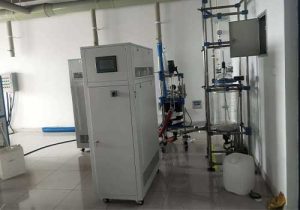air cooled water chiller system
Air-Cooled Water Chiller Systems: Efficient Cooling for Diverse Applications
Air-cooled water chiller systems are an essential component in the HVAC industry, providing efficient cooling for a variety of applications. These systems offer several advantages over traditional water-cooled chillers, including lower maintenance costs, quiet operation, and reduced energy consumption. As the global demand for sustainable and efficient cooling solutions grows, air-cooled chiller systems are increasingly being adopted across various sectors.

How Air-Cooled Water Chiller Systems Work
Air-cooled chillers operate on the basic principles of refrigeration, using a compressor to circulate refrigerant through the system. The compressor pressurizes the refrigerant, which then enters the condenser. Here, heat is transferred from the refrigerant to the ambient air, cooling the refrigerant in the process. The cooled refrigerant then passes through an expansion valve, reducing its pressure and temperature further before entering the evaporator. In the evaporator, the refrigerant absorbs heat from the water or other fluids being cooled, and the cycle repeats.
Advantages of Air-Cooled Water Chiller Systems
Lower Maintenance: Air-cooled chillers require less frequent part replacements compared to water-cooled systems, as they are not exposed to outdoor elements and are less susceptible to corrosion.
Quiet Operation: These systems operate quietly, making them suitable for noise-sensitive environments such as hospitals, schools, and residential areas.
Energy Efficiency: Air-cooled chillers can be more energy-efficient in dry climates, as they do not require the additional energy input needed for water cooling.

Space Efficiency: Due to the absence of a cooling tower, air-cooled chillers take up less space, making them ideal for installations with limited footprints.
Applications of Air-Cooled Water Chiller Systems
Air-cooled water chiller systems are used in a wide range of applications, including:
Commercial Buildings: They provide cooling for office buildings, malls, hotels, and other commercial spaces where quiet operation and energy efficiency are valued.
Data Centers: These systems are crucial for maintaining optimal temperatures in server rooms, ensuring the reliable operation of IT equipment.
Industrial Processes: In manufacturing and processing facilities, air-cooled chillers help control process temperatures, enhancing productivity and efficiency.
Market Trends and Growth Drivers
The global market for water chillers, including air-cooled systems, is expected to reach $8.4 billion by 2032, growing at a CAGR of 3.4% from 2023 to 2032. Several factors contribute to this growth:
Increasing Demand for Energy-Efficient Cooling: As energy costs rise and environmental concerns grow, there is a greater push for energy-efficient cooling solutions.

Rising Urbanization: The expansion of urban areas and the construction of new commercial and residential buildings drive the demand for effective cooling systems.
Growth in Industrial Applications: The increasing need for precise temperature control in various industries fuels the demand for reliable chiller systems.
Challenges and Considerations
Despite their advantages, air-cooled chiller systems face challenges such as reduced efficiency in humid environments and higher initial costs compared to water-cooled systems. However, technological advancements and the development of more efficient compressors and refrigerants are helping to overcome these obstacles.
Conclusion
Air-cooled water chiller systems offer a reliable and efficient cooling solution for a variety of applications. Their quiet operation, low maintenance requirements, and energy efficiency make them an attractive option for many industries. As the global market for water chillers continues to grow, air-cooled systems are expected to play a significant role in meeting the increasing demand for sustainable and efficient cooling solutions.
Related recommendations
types of water cooled chillers
709Types of Water-Cooled Chillers Water-cooled chillers are categorized based on the type of compressor and the refrigeration cycle they use: Centrifugal Chillers: Known for their high capacity...
View detailsheat transfer oil system
470Understanding Heat Transfer Oil SystemsHeat transfer oil systems are engineered to provide precise temperature control across a range of industrial processes. These systems operate by circulating ...
View detailsportable chiller manufacturers
686Portable Chiller Manufacturers: Customizable Cooling Solutions Portable chiller manufacturers cater to the diverse needs of industries by providing a wide array of portable chillers designed fo...
View detailsstorage chiller
803Introduction to Storage Chillers Storage chillers are essential in preserving the quality and safety of temperature-sensitive products in industries such as food processing, pharmaceuticals, an...
View details
 LNEYA Chiller
LNEYA Chiller






HelloPlease log in